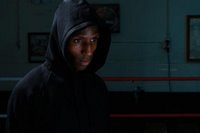
From The Miami Herald…
-------------------------------------
‘Our young men are dying’
BY ANDREA ROBINSON
Dwight Jackson longs for those days 30 years ago when young black men settled their disputes the old-fashioned way: with loud trash talk and occasional fisticuffs. When the dust-ups were over, the combatants walked away and went home.
Not anymore. Simple disputes now too often turn deadly.
Jackson, 47, sees it in the back room of the Liberty City mortuary where he makes mangled bodies presentable for public viewing. Jackson, owner of Richardson Mortuary, receives at least 10 young, black homicide victims a month; that’s more than there were, say, 20 years ago, other longtime employees there remark.
“Inner-city [boys] are being killed over silly stuff … built on hate and envy,” he said, shaking his head.
Forty years after the Kerner Commission report -- in the wake of the Watts riots in Los Angeles -- tried to sort out why young black men were killing each other, Jackson keeps wondering how things could have gotten so bad in South Florida and the nation.
A new, first-time Florida initiative seeks to find the answers and save at-risk black males -- who state Sen. Frederica Wilson, D-Miami, calls “an endangered species.”
“This goes beyond public safety and prevention. It’s public health. It goes to our mental condition,” said state Rep. Frank Peterman, a St. Petersburg Democrat.
Peterman and Wilson sponsored legislation to create the Council on the Social Status of Black Men and Boys, which former Gov. Jeb Bush signed into law last June and which first met in February. The council, located in the Attorney General’s office and budgeted at $200,000 per year, will study a litany of conditions that negatively affect black males: escalating homicide, arrest and incarceration rates, poverty, violence, low income, the breakdown of the family structure and school performance and health issues.
And it will produce yet another report -- like so many other commissions have done around the nation over the past 40 years -- that will propose ways to change the driving forces that have left so many black males in prison or dead from Miami and Fort Lauderdale to Orlando and Jacksonville.
Wilson said the council will recommend legislative action to address the issues of concern. The first report is due by the year’s end.
Peterman promises the Florida commission won’t be a “touchy-feely exercise” and said it will examine the breakdown in the black family and the heavy toll it is taking on males. To do that, it will need solid information of the sort requested by council chairman Levi Williams last week. In a teleconference on Wednesday, Williams, a Fort Lauderdale attorney, asked the heads of state agencies for data on racial and ethnic disparities.
SCOPE OF THE PROBLEM
Black males, Wilson said, are like Florida’s panthers and manatees: dying young and at the mercy of human predators.
“We’re so disproportionately affected by all of this [black-on-black male violence]. There are no men available to teach black boys how to become responsible men,” Wilson said.
That sentiment is echoed by Beverly Colson Neal, executive director of the Florida NAACP office in Orlando: “Our young men are dying. This didn’t just start.”
Florida is among a handful of states, including Ohio and Indiana, to have panels looking for ways to stop the rising violence that is a festering national problem, one the U.S. Conference of Mayors also hopes to tackle. The mayors’ meeting was held last month in Miami -- an appropriate venue to discuss violence because South Florida is a region under siege.
[Click on the essay title above to read the full story.]

No comments:
Post a Comment